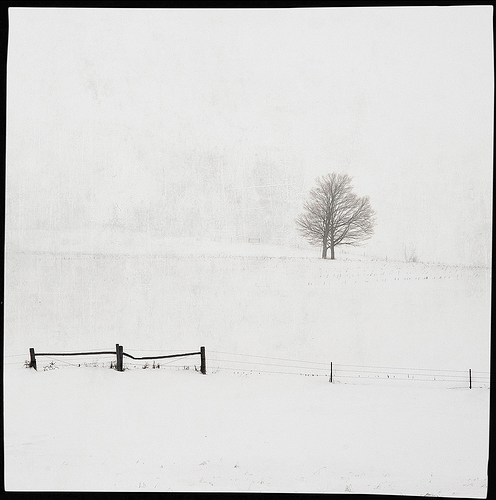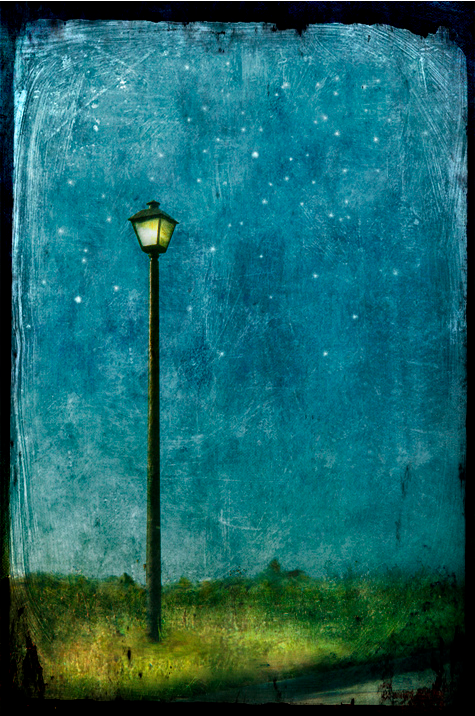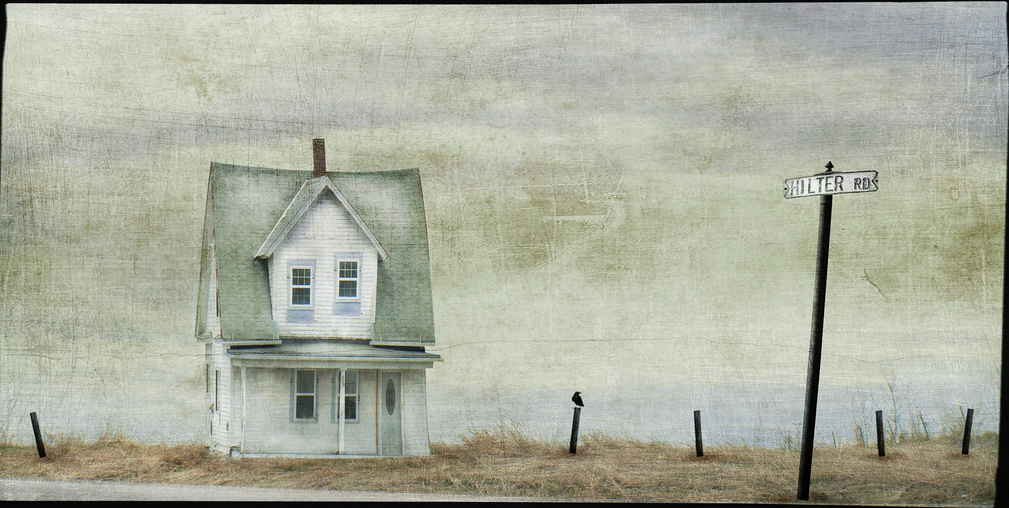Ghost in the Valley
We had a white barn cat named Ghost who disappeared when I was six. Mom said she saw a hawk take him away. I pictured the two of them—the cat and the hawk—soaring over the valley like a couple of tandem hang gliders. I told Mom I bet Ghost liked flying. “Oh, honey,” she said. She covered her mouth with her hand. And then my older brother Jason, who’d been eavesdropping from across the room, laughed and said, “You’re the weirdest little kid.” I could see Mom’s smile spilling around the hand covering her mouth.
I ran out the door to the barn where Ghost used to hunt mice. Mom called after me.
I climbed the ladder to the hay loft and meowed, hoping to see Ghost emerge from some dark corner, arching his white back in anticipation of a scratch. Over the bales of hay I crawled, with stray spires pricking my palms and knees. And then I opened the loft door and sat at the ledge, letting my legs dangle.
The barn looked out over a valley that years later would flood when torrential rains made the rivers swell. I squinted into the distance, willing superpower vision to reveal Ghost stalking mice in the fields or soaring over treetops with his buddy the hawk. But it was a foggy morning, and no hawk’s vision would help me find my lost cat.
There were so many things I couldn’t see in those days—like the liquor Jason stole from the kitchen cabinet or the late night conversations between Mom and Dad over the piles of past-due bills. So many things weren’t ever going to come back. But what did I know? I imagined flying over the foggy treetops, gripped by a hawk who I thought was my friend, and stretching my padded paws earthward toward home.



